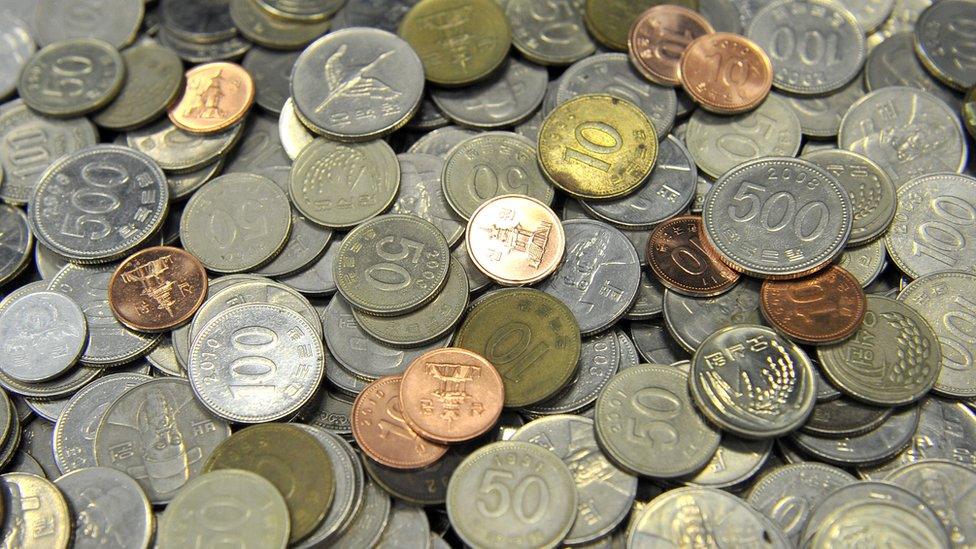South Korea begins coinless society trial
- Published

South Koreans will be able to opt out of carrying loose change in their pockets
South Korea is starting a trial which could result in banishing its largely worthless coins from the country's economy.
Starting on Thursday, instead of accepting small change from purchases, customers at selected stores can instead opt to deposit it onto prepaid cards such as transportation cards, the . This means that customers won't have to carry change in their pockets after making cash payments, the Bank of Korea (BOK) says.
Some of South Korea's major convenience stores are taking part in the scheme and, if the initial trial is a success, bank officials plan to allow change to be remitted straight into bank accounts by next year. According to the , nearly two-thirds of people surveyed by BOK say they don't carry coins any more, with half of those polled supporting plans for a coinless society.
One of the major drives behind the move - apart from the convenience to the public - is the cost of producing the coins balanced against their actual value. The lowly 10 won coin represents the equivalent of around half a British penny; while the largest value coin is 500 won, worth around 35p, or 44 US cents. The lowest value bank note is 1,000 won. According to BOK, the country spent 53.7 billion won ($47m; £36.7m) on producing coins in 2016.
Cha Hyeon-jin, one of the officials behind the scheme, says that while no long-term decisions have been made, there's a "good chance" that going coinless could eventually lead to a totally cashless society in South Korea at some stage in the future.
Next story: Zimbabwe schools accept goats for tuition fees
Use #NewsfromElsewhere to stay up-to-date with our reports via .